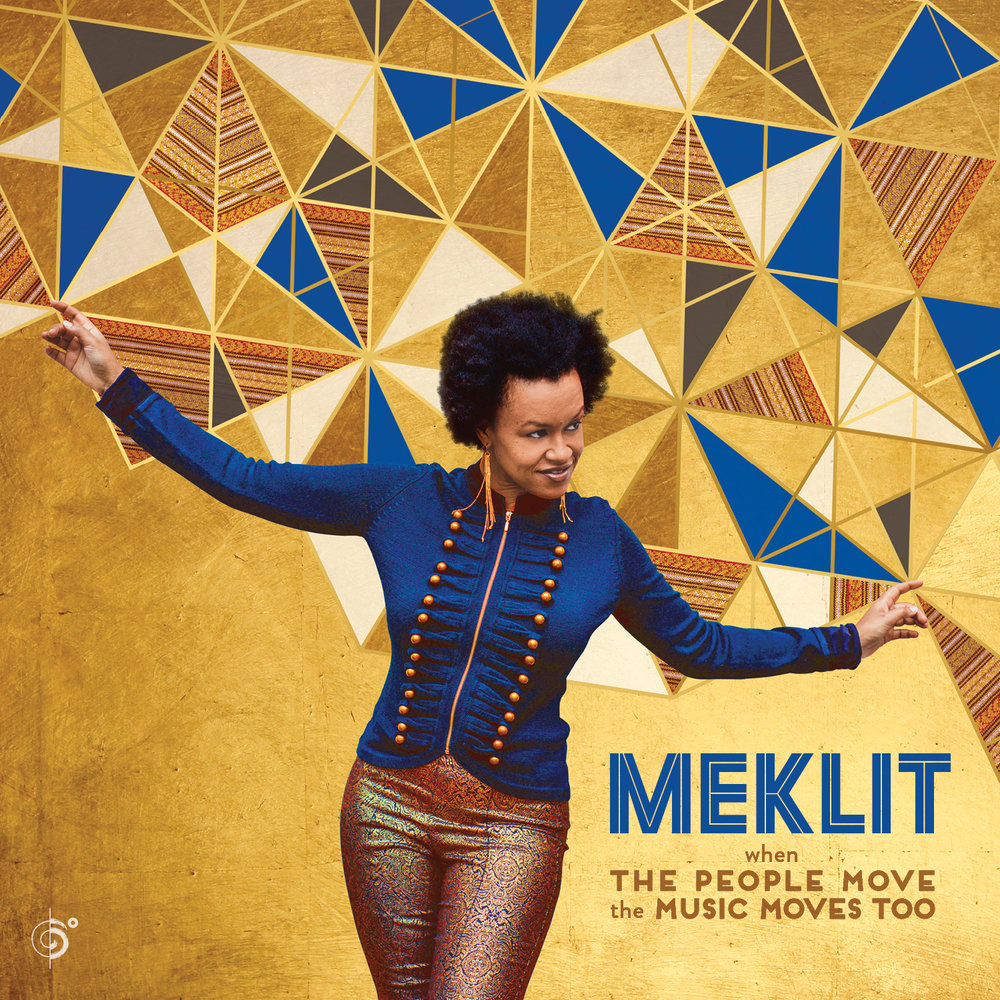It's a rare artist whose lineage spans from Mulatu Astatke to Buffy Sainte-Marie--in fact, Meklit may be the only one. Her latest album, When the People Move, The Music Moves Too, on Six Degrees Records, grafts Meklit's singer-songwriter impulses to Ethio-jazz, creating something compelling and wholly her own.
Born in Ethiopia, Meklit Hadero has been on the Afropop Worldwide radar for years now—singing in the pan-African Nile Project, and giving compelling speeches at APAP and TED Talks.
While her previous solo album, 2016's On A Day Like This, skewed closer to straight singer-songwriter—arrangements built around the acoustic guitar and Meklit's nimble voice—her new record is built around the aesthetics of Ethio-jazz. Songs sway in tight 6/8. Horns, sometimes sounding on loan from New Orleans' Preservation Hall, burst out on pentatonic runs. The acoustic guitar still appears, Meklit busts out the krar, a variation on the harp from Ethiopia and Eritrea, a few times for more intimate moments.
That said, the record is never anything less than totally approachable. It was produced by Dan Wilson, who has won a Grammy and worked with the likes of Adele, the Dixie Chicks and Taylor Swift. The majority of the songs are in English. The album comprises knotted, earnest ruminations on finding one's self, finding one's loves, and anthems for the very act of making music. As a vocalist and melodic composer, Meklit sounds less like Mahmoud Ahmed and more like St. Vincent—someone whose sung lines don't shy away from complexity, but also has a knack for seeding her music with plenty of hooks.
At her record release show in New York, Meklit introduced the album's first single, “I Want to Sing For Them All,” calling it “my anthem,” and in characteristic fashion, added incredulously, “I have an anthem!”










